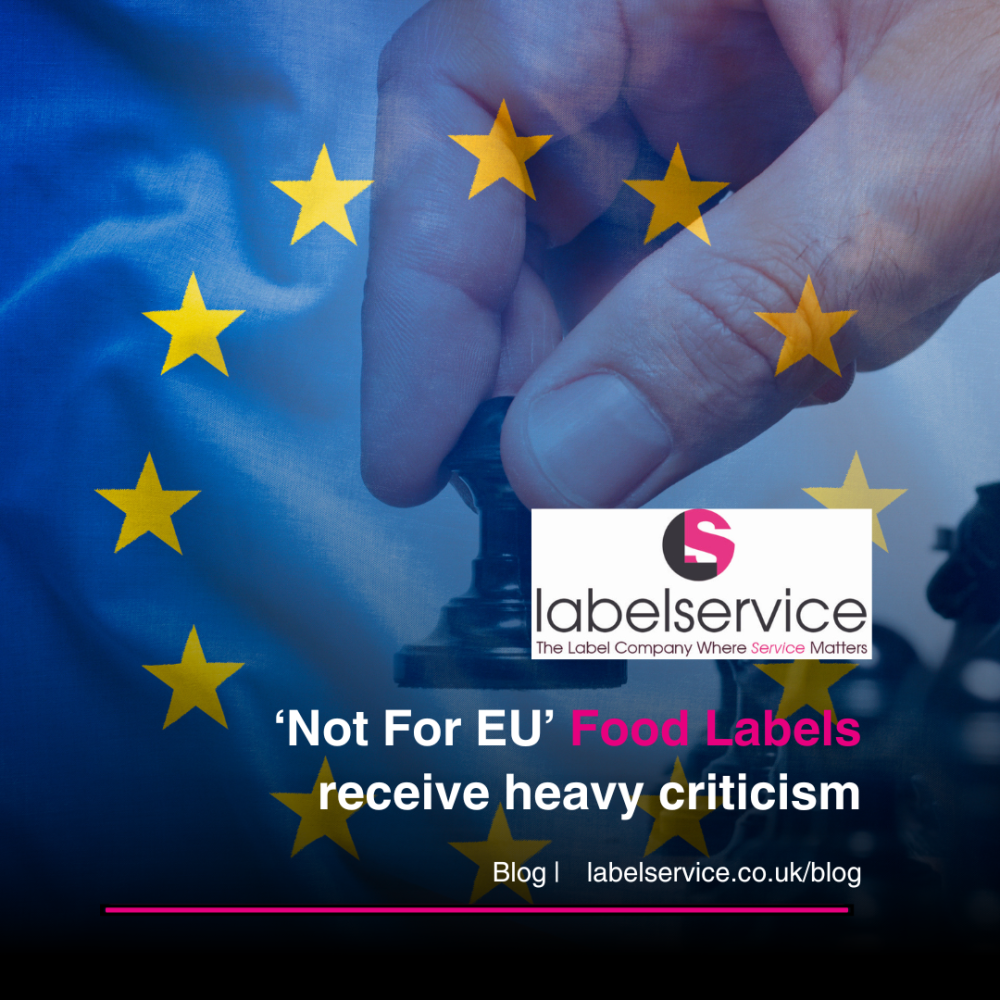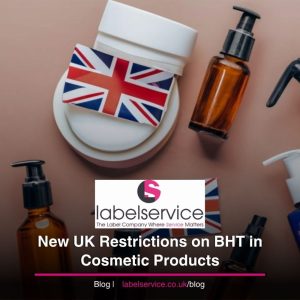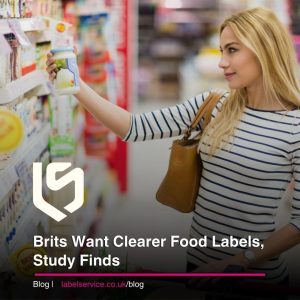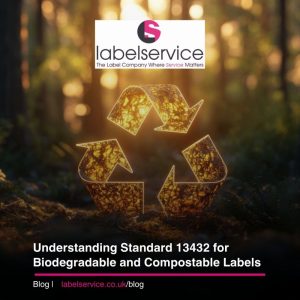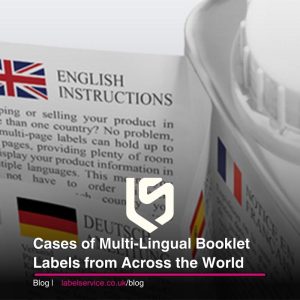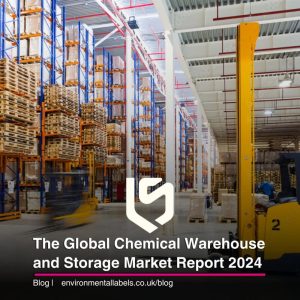Since 1 October 2023, businesses in Great Britain (England, Scotland and Wales) are able to move prepacked retail goods as well as certain loose goods including fruit and vegetables through the “green lane” to Northern Ireland, under the Windsor Framework. This is the Northern Ireland Retail Movement Scheme. From this date, there is a new, proportionate labelling requirement for moving goods through the green lane, to make sure that goods are not moved onwards into the EU. These include different requirements for labelling individual products, some boxes and displaying signage in retail premises in Northern Ireland.
The Northern Ireland Retail Movement Scheme means you will no longer need to complete multiple export health certificates or put an EU address on individual products. Movements will use a single General Certificate instead, and can use an address in the United Kingdom (England, Scotland, Wales, and Northern Ireland), the Channel Islands (Guernsey and Jersey) and the Isle of Man.
Individual labels
Under the Northern Ireland Retail Movement Scheme some food products will need individual product labels with the words ‘Not for EU’. These requirements will be brought in through 3 phases from October 2023 to July 2025.
This includes products imported into Great Britain from the European Union and certain products from the Rest of the World. You only need to label the outer packaging of a multipack. In the first phase, only products moving into Northern Ireland under the Northern Ireland Retail Movement Scheme will need to meet the labelling requirements. From phase 2, the government intends to introduce labelling requirements in Great Britain (England, Scotland and Wales) following consultation.
In order to ensure unfettered access for Northern Ireland goods to the UK market, Northern Ireland businesses will not need to apply these product labels when placing their products on the market in Great Britain.
Phase 1
From 1 October 2023 all meat products and some dairy products that are moving from Great Britain to Northern Ireland will need to be individually labelled. In the first phase, only products moving into Northern Ireland under the Northern Ireland Retail Movement Scheme will need to meet the labelling requirements. From phase 2, the government intends to introduce labelling requirements for Great Britain (England, Scotland and Wales).
Phase 2
From 1 October 2024, in addition to the phase 1 products, all milk and dairy products moving to Northern Ireland under the Northern Ireland Retail Movement Scheme will need to be individually labelled. At this stage, all meat and dairy products in Great Britain (England, Scotland and Wales) will also need to be individually labelled.
Phase 3
From 1 July 2025, composite products, fruit, vegetables and fish moving to Northern Ireland under the Northern Ireland Retail Movement Scheme will also need to be individually labelled. The same products in Great Britain (England, Scotland and Wales) would also need to be individually labelled. Not all products moved under the Northern Ireland Retail Movement Scheme need to be individually labelled. There is an exemption list below. If products are individually labelled, you will not need to label the box, nor provide appropriate signage.
Confusion
A woman picks up a packet of “Ardennes-style pâté” before dropping it in disgust. “I’m throwing it out,” she tweets, adding, “We are now eating any old shit.” Is the pâté past its sell-by date? In fact, the answer lies in a small, post-Brexit detail on the packaging.
New rules requiring foods to carry “not for EU” labels are already sparking confusion — and, in some cases, outright disgust — from U.K. shoppers, as experts warn the new policy risks leaving Brits in the dark and wrongly suggesting the items are produced to lower standards.
Some Brits have been confused by the wording “Not for EU” appearing on the labels of some food items in local stores and supermarkets. Forming part of the Windsor Framework agreed upon between the UK and the EU, the post-Brexit wording is designed to stop food products from ending up in the European Union. However, the labelling has left some shoppers questioning whether UK food items are of a lower standard than their EU counterparts.
The “Not for EU” labels have been introduced on some products that move between Great Britain and Northern Ireland. The labels are meant to stop produce from crossing into EU regions, such as the Republic of Ireland, from Northern Ireland. It’s all connected to the red tape that has emerged due to Brexit and the Northern Ireland protocol.
Due to differing food regulations between Great Britain and the EU, authorities had to think of a way to ensure the passage of goods from Great Britain to Northern Ireland. They had to do this without jeopardising the unique customs setup between Northern Ireland and the Republic of Ireland. One of the results was the Windsor Framework, which established a ‘green lane’ that could reduce red tape on products crossing the Irish Sea. This led to the agreement for “Not for EU” labelling.
Social media has since been alight with people questioning whether these food products are of a lower standard or fail to meet EU regulations. In reality, products with the “Not for EU” logo simply mean they’re meant to remain in the UK market, and it doesn’t relate to products not being up to EU standards.
However, some shoppers are still a little uncertain. “Let’s be honest about this, the ‘Not For EU’ label on foods shows that Britain is the dirty man of Europe thanks to #Brexit. Your only upshot is a pint of wine!” joked one social media profile. “They’ve spent decades complaining about the EU being over fussy on high food standards – now they label food in UK supermarkets as ‘not for EU consumption’,” added another.
Someone else wrote: “This all shows the wisdom of EU to insist on the ‘not for EU’ label. It safeguards EU producers against GB competitors that can produce cheaper because of lower environmental and labour standards.” Another profile added: “Whatever the facts of the matter, this ‘Not for EU’ label will be widely read as Brexit dropping our food standards.”
One shopper contemplating buying some milk wrote: “My milk now says ‘not for EU’ on it — can you confirm that this is just because of U.K. red tape and that it still complies with EU safety standards? I’d hate to think it’s ‘special’ Brexit milk that’s not safe for Europeans.” Another posted a picture of some ham in Sainsbury’s, moaning: “We presume not meeting EU food safety standards. Good enough for little Englanders who thrive on second-rate everything though.” Posting a picture of a pot of chicken liver parfait, a dismayed Tesco shopper asked: “Does that mean [it’s] made to a lower standard?” While yet another complained: “I recoil each time I see food in supermarkets with the label: not for EU.”
Shoppers can rest assured, however, that the labels do not denote a reduction in standards. Aside from some divergence on pesticides, British food standards so far remain largely unchanged since Brexit. But exporters are in uproar over the scheme as the labels prevent them from trading items that could otherwise be sold into the EU.
Backlash
“In a food world where labeling leaves a lot to be desired and has been subject to much politics, for the government to introduce a ‘not for EU’ is frankly stupid,” Tim Lang, a professor emeritus of food policy at City University of London, said. “It sends messy signals and raises the understandable question – not good enough? Why not for EU? If not EU, who? Someone else? Lower or higher standards? People’s confusion is entirely understandable.”
Christopher Elliott, a professor at the Institute for Global Food Security at Queen’s University Belfast, added: “Many consumers find food labels confusing enough without yet another additional layer of red tape. Like many warned and the government denied, the implementation of so many aspects of Brexit has brought about additional regulatory burdens and costs for industry and ultimately increased costs and reduced choice for consumers. The outworking of the Windsor Framework is another example where it’s lose-lose for all.”
Andrea Martinez-Inchausti, assistant director of food at the British Retail Consortium, which represents all major U.K. supermarkets, sounded more sanguine. “The requirement for ‘Not for EU’ labelling is a legal requirement in Northern Ireland but that will also be the case across the rest of the U.K. from this autumn, if government proposals are implemented,” she said. “We are sure the government is considering how best to communicate to consumers what the label means and why it is required.”
A government spokesperson told POLITICO: “The ‘Not for EU’ label is designed to support retailers and supermarkets to move food and drink products between Great Britain and Northern Ireland as smoothly as possible. “It means suppliers will not have to establish different production lines to be able to sell goods in Great Britain as well as Northern Ireland, ensuring products remain on the shelves and consumer choice is maintained.”
Backlash from Scotland
UK-wide requirements of “not for EU” labelling on food and drink will place an unnecessary burden on businesses, the Scottish Government has said. Rural Affairs Secretary Mairi Gougeon has raised concerns with UK ministers, saying issues of food labelling are devolved. Since last October, meat and dairy goods going to Northern Ireland from Great Britain have needed “not for EU” labels as part of the Windsor Framework of post-Brexit trade rules. This requirement is expected to be rolled out across the UK from October 2024.
Gougeon has written to Steve Barclay, the Secretary of State for Environment, Food and Rural Affairs, to request a meeting. While acknowledging the labelling rule for goods going to Northern Ireland is needed to uphold the Windsor Framework, Gougeon said she and producers had concerns about making it UK-wide. Any attempt to legislate for such a rule in Scotland without Holyrood’s consent would be a “very serious issue”, she said.
The SNP minister said: “As labelling is a wholly devolved matter, the policy decision on whether to place this additional burden on Scottish businesses should rest with the Scottish ministers. On the face of it, your proposals would impact a large number of businesses in Scotland who do not sell goods to Northern Ireland but would be required to change their labelling, or who sell into Europe and would be required to set up separate labelling streams. “I do not support this GB-wide labelling proposal as it stands and I am not persuaded on the information provided so far that there is a case to introduce it in Scotland. “I look forward to meeting with you and discussing this issue in due course.”
Some retailers have expressed concern that businesses have not had enough time to prepare for the scheduled labelling change. However, the government has suggested in its most recent guidance that it may not fully enforce the new rules in the initial period after introduction. An update issued in late July by the Department for Environment, Food and Rural Affairs stated that “procedures will be in place” during the first few months of the new scheme to ensure that authorised food traders will be able to benefit from the green lane between Great Britain and Northern Ireland.


